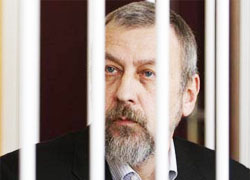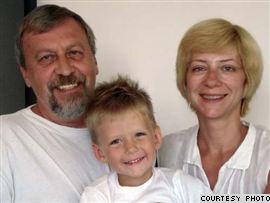Index relies entirely on the support of donors and readers to do its work.
Help us keep amplifying censored voices today.
Human rights activist, Nabeel Rajab, was summoned to a military court just hours before Bahrain was due to lift its emergency law. He is now missing. Rajab is president of the Bahrain Center for Human Rights (BCHR). Bahrain’s state of emergency was lifted today, introduced almost three months ago, the emergency law coincided with the arrival of over 1, 000 Saudi troops who were called to crush largely peaceful Shiite protests.
In post-revolutionary Egypt, freedom of expression is yet to be a given.
On 15 May, for instance, scores of protesters commemorating the Palestinian exodus of 1948 near the Israeli embassy were beaten and shot. At least 350 were injured and 160 arrested and transferred to military prisons. They were charged with “destruction of public property with the intention of attacking the embassy; creating mayhem; use of force against public servants (police and armed forces); endangering the public and public transportation means; joining a gang with the intention of harming social peace”.
Several of those detained have been released on probation, ranging from six to twelve months after being sentenced by a military court. Some remain in prison.
Since the end of Mubarek’s reign in February, there have been 5,600 such military trials sentencing civilians. That estimate is already couple of weeks old, said Human Rights Watch’s Heba Morayef. The number today is probably much higher.
The interim government claims its heavy-handedness is necessary to control saboteurs and criminals who have sought to take advantage of the lax security climate in the aftermath of the revolution as the police forces are replaced by an army untrained for urban policing tasks. In reality, army firepower has been directed, at times with fatal consequences, towards civilian protesters.
On 22 May, the army issued a statement accusing “some foreign elements claiming heroism and nationalism of issuing false statements developed by their sick imagination to incite against some members of the Supreme Council of the Armed Forces (SCAF) leadership and to create discord between the army and the people.” The communiqué goes on to warn that “those external elements” are sending their followers to infiltrate “the free revolutionary demonstrations” in order to instigate a clash between the people and the security forces — a declaration widely seen as a veiled threat.
But this was not much of a deterrent for Egyptians.
On 23 May, more than 370 bloggers defied a journalistic ban on broaching the subject of the army and heeded a call to write a post “evaluating the performance of the SCAF as the ruler of the country, with the aim of providing constructive criticism.” They criticized military trials for civilians, the emergency law, and the ruling junta’s failure to prosecute members of the old regime. On Twitter, the #NoSCAF hashtag was assuredly the most widely used all day, and served both as a repository for vocal objections and an increasingly loud call for action.
A massive protest scheduled last Friday, 27 May, was met with the most unexpected reaction from the army: the army issued its communiqué number 58 declaring that “the armed forces have decided not to be present in the protests locations to avoid such risks (of division between people and army), counting on the revolution youth who will take over the organising and defense” — that is, since you’re protesting our behaviour, we won’t be protecting you from any potential attack. The protest nevertheless went ahead as planned, peacefully; and the message would’ve hopefully reached the ears of the SCAF.
 Leading Belarusian opposition politician Andrei Sannikov has been sentenced to five years hard labour for “organising mass disturbance”. Sannikov, the leader of European Belarus, was detained after protests against the disputed re-election of Alexander Lukashenko on 19 December last year. The trial of Sannikov’s wife Irina Khalip, a journalist with Russian newspaper Novaya Gazeta, began last week.
Leading Belarusian opposition politician Andrei Sannikov has been sentenced to five years hard labour for “organising mass disturbance”. Sannikov, the leader of European Belarus, was detained after protests against the disputed re-election of Alexander Lukashenko on 19 December last year. The trial of Sannikov’s wife Irina Khalip, a journalist with Russian newspaper Novaya Gazeta, began last week.
The 57-year-old former diplomat was reported to have said “take care of my family” as he was led from the court. Attempts have been made to take Sannikov and Khalip’s young son, Danil, into state custody.
In an earlier statement in court, Sannikov claimed he had been tortured while held in the Belarusian KGB’s notorious “Amerikanka” detention centre.
Four other opposition activists were sentenced today for taking part in “mass disturbances”: Oleg Gnedchik was sentenced to three-and-a-half years, while Fedor Mirzayanav, Vladimir Yaromenak and Ilya Vaselevich each received sentences of three years.
 Mike Harris, Public Affairs Manager of Index on Censorship said: “The imprisonment and torture of presidential candidate Andrei Sannikov is Europe’s shame. Belarus is degenerating to its Soviet past, Sannikov was jailed simply for attending an opposition rally. His wife is also on trial for attending this protest and the government attempted to take his three- year-old son into care.”
Mike Harris, Public Affairs Manager of Index on Censorship said: “The imprisonment and torture of presidential candidate Andrei Sannikov is Europe’s shame. Belarus is degenerating to its Soviet past, Sannikov was jailed simply for attending an opposition rally. His wife is also on trial for attending this protest and the government attempted to take his three- year-old son into care.”
He added: “Europe must use all tools at its disposal including stopping Western banks and the IMF financing the regime. Putting presidential candidates in jail in Europe in 2011 is not acceptable.”
In his final speech before the verdict former presidential candidate Andrei Sannikov said: “I love my family more than life. I love Belarus. I love freedom very much. I know that my family and all the people of Belarus will be happy when we become free, but this is impossible without law and order.”
Six people convicted of taking part in a political rally protesting the reelection of President Alexander Lukashenko were sentenced today. Vladimir Loban, Evgueniy Sekret and Serguey Kazakov were sentenced to three years in a labour camp and Andrey Fedarkevich, Dmitry Doronin and Vitaly Matsukevich were sentenced to three and a half years.